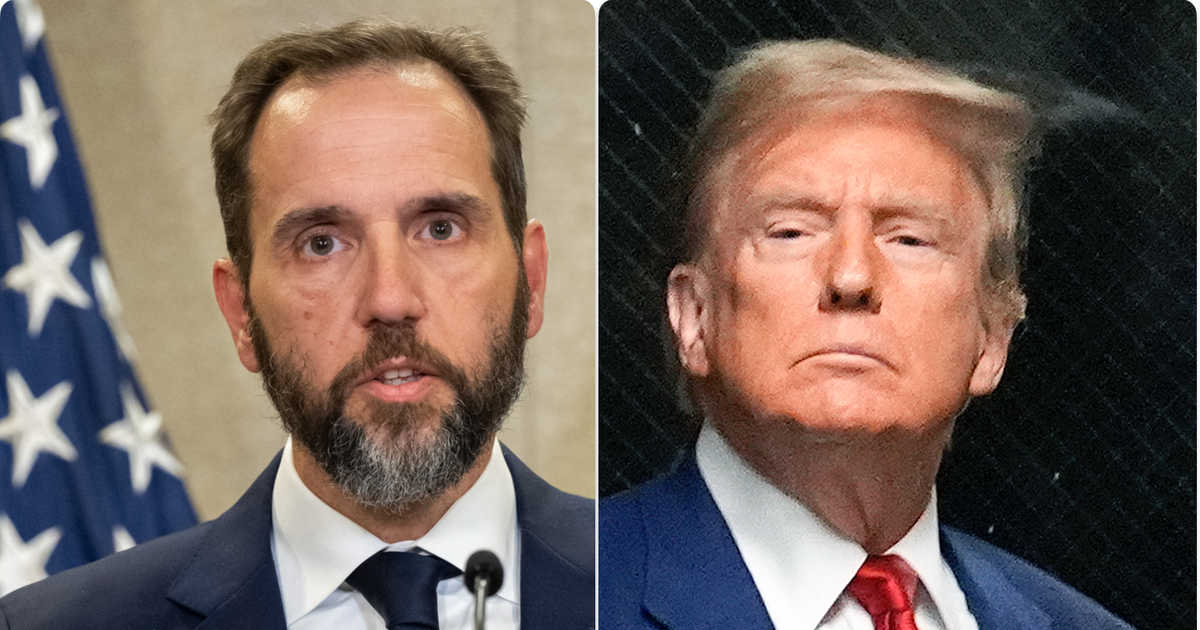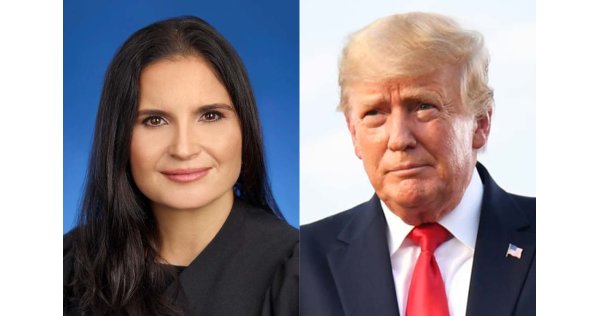Update on the Classified Documents Case Against Former President Donald Trump
In a recent court filing, special counsel Jack Smith urged a federal judge to exclude a presidential recordkeeping law from the jury instructions in the classified documents case against former President Donald Trump. Smith's team argued that including the law in the instructions could jeopardize the proceedings. Prosecutors also expressed their intention to appeal the judge's decision if she ruled against them.
U.S. District Court Judge Aileen Cannon, overseeing the case in Florida, had requested both Smith's and Trump's legal teams to file jury instructions based on two hypothetical scenarios. In one scenario, the president has the authority under the Presidential Records Act (PRA) to categorize any records as personal, eliminating the court and jury's ability to review the decision. In the other scenario, the jury would be able to examine a record retained by a former president and determine if it was "personal or presidential" under the PRA. Federal prosecutors rejected both proposals, claiming that the PRA should not play any role in the trial since Trump's alleged mishandling of classified records occurred after his presidency ended.
Smith's team suggested that jurors should only have to determine three elements of the case, which focus on whether Trump willfully retained national defense information without authorization from the federal government. They also requested that if the judge decided to include language concerning the PRA, they be given ample time to appeal the matter to higher courts before the trial.
On the other hand, Trump's legal team agreed with Judge Cannon's suggestion that the jury instruction should grant Trump broader power under the PRA. They argued that if the case were presented to a jury, the jurors would need to resolve factual issues related to PRA categorizations and the alleged classification status of documents. They proposed that the jury be informed that Trump was authorized to access classified records during his presidency and that certain precedents allow former presidents to access certain documents.
The special counsel has charged Trump with 40 counts, including 32 alleged violations of a national security law that prohibits the mishandling of national defense information. Trump is also accused of engaging in an obstruction scheme to impede federal investigators as they probed his retention of classified documents. The FBI recovered over 300 sensitive government records from Trump's Mar-a-Lago residence, which prosecutors claim he illegally kept. Trump has pleaded not guilty to all counts and has denied any wrongdoing.
The question of presidential versus private records under the PRA has become a point of contention between the two sides. Smith's team argued that the recovered documents with classified markings are indisputably presidential and that Trump was not authorized to possess classified records at all. They stated that this is not a question for the jury but a matter of law to be decided by the judge. Trump's legal team, on the other hand, asserted that the PRA grants Trump "unreviewable discretion" over classified records and that the court has no jurisdiction in the matter.
The trial date for the case has yet to be set, and Trump's legal team has filed several motions to dismiss the indictment, including one based on the PRA granting Trump discretion over classified records. Judge Cannon has not ruled on these motions or on the request from Smith to reconsider a ruling related to protected witness names. The judge held a hearing on these issues on March 1. Initially, Trump argued that the trial should not proceed before the fall election, but he later conceded that August would be feasible if the judge decided to proceed. The special counsel, however, pushed for the trial to begin in July, although it seems less likely given the unresolved motions on the docket.
It is important to note that the court proceedings are ongoing, and the judge will make further determinations regarding the inclusion of the PRA in the jury instructions and the dismissal motions filed by Trump and his aides, Walt Nauta and Carlos de Oliveira, who also face charges in the case.


